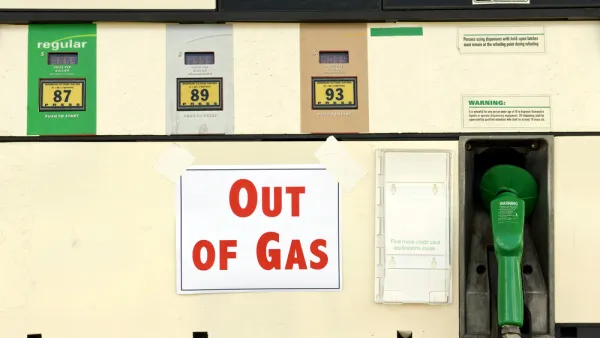Gov. Tom Corbett's goal of increasing transportation funding was thwarted by political differences in the House. Republicans couldn't agree on lifting the gas tax cap while Democrats wanted more funding for transit. They will try again in the fall.
Illustrating how difficult it is to legislatively increase gas tax revenue, Marc Levy and Mark Scolforo write that the budget, signed on June 30 by Gov. Corbett, failed to include three of his priorities: "overhauling public employee pension systems, privatizing wine and liquor sales and increasing transportation funding".
Technically, it would not have been a tax increase. Paul Nussbaum, Philadelphia Inquirer staff writer, explains on Feb. 07.
Corbett, who vowed during his election campaign not to raise taxes, said the change would not be a tax increase but merely the lifting of "an artificial and outdated cap" on a wholesale tax paid by oil and gas companies."
While the House Transportation Committee passed a transportation funding bill on June 27th, it was unable to muster enough Republican votes to get a majority because many objected to lifting the cap, viewing it as a tax increase, while "House Democrats have not been supportive of it because they see it as inadequate, particularly for mass transit system"
Lifting the cap presumably could add 28.5-cents to a gallon of gas (over 3-5 years, depending on which bill had passed) if the wholesaler were to pass it on to the consumer. The Daily Local News also explains how the 12-cent excise tax would have been reduced by 2-cents in their July 02 editorial.
The transportation bill passed the Senate on June 5. Had the bill passed the full House of Representatives, Peter Jackson writes in BloombergBusinessweek that it would have faced an additional challenge: reconciling it with the Senate bill that raised more funds in a shorter time frame.
Pennsylvania's 32-cent gas tax, fifteenth highest in the nation according to the Tax Foundation, was last increased in 1997, writes Nussbaum.
FULL STORY: Gov. Corbett signs Pa. budget, but many agenda items stal

Analysis: Cybertruck Fatality Rate Far Exceeds That of Ford Pinto
The Tesla Cybertruck was recalled seven times last year.

National Parks Layoffs Will Cause Communities to Lose Billions
Thousands of essential park workers were laid off this week, just before the busy spring break season.

Retro-silient?: America’s First “Eco-burb,” The Woodlands Turns 50
A master-planned community north of Houston offers lessons on green infrastructure and resilient design, but falls short of its founder’s lofty affordability and walkability goals.

Test News Post 1
This is a summary

Analysis: Cybertruck Fatality Rate Far Exceeds That of Ford Pinto
The Tesla Cybertruck was recalled seven times last year.

Test News Headline 46
Test for the image on the front page.
Urban Design for Planners 1: Software Tools
This six-course series explores essential urban design concepts using open source software and equips planners with the tools they need to participate fully in the urban design process.
Planning for Universal Design
Learn the tools for implementing Universal Design in planning regulations.
EMC Planning Group, Inc.
Planetizen
Planetizen
Mpact (formerly Rail~Volution)
Great Falls Development Authority, Inc.
HUDs Office of Policy Development and Research
NYU Wagner Graduate School of Public Service


























